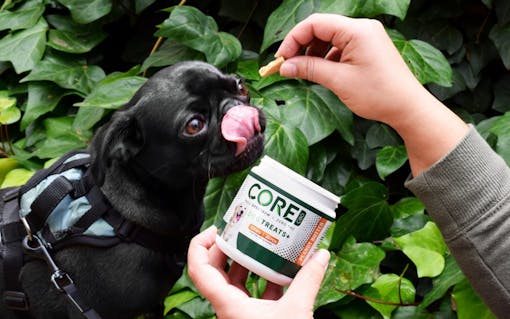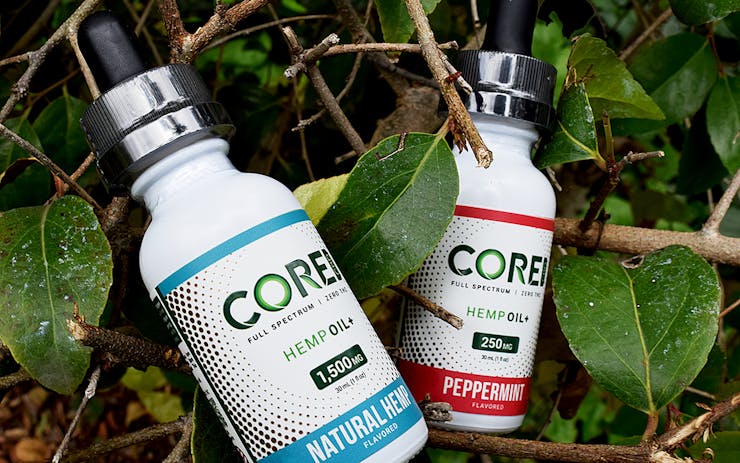This article is presented by Core CBD, an online retailer dedicated to bringing quality-tested CBD products sourced from US-grown hemp to customers around the world.
Following the passage of the Farm Bill and its legalization of hemp cultivation, the market for CBD products in the United States is growing at a breakneck pace. The huge expansion that the industry has seen in recent months, though, can make it easy to forget that the Farm Bill wasn’t the end of the conversation around CBD’s legal standing, but the beginning.
Where CBD Regulation Stands Now
While expansion is currently outpacing regulation in the CBD oil industry, that won’t be the case forever. When changes do come to how CBD products are licensed and regulated, they’re likely to be major and go into effect quickly. That could have a serious impact on a great many CBD retailers, and it’s why companies such as California-based Core CBD are aiming to stay ahead of the game when it comes to compliance.
“At the moment, there are no meaningful regulations around extracting, manufacturing, or processing CBD extracts,” says Core CBD marketing director Danny Diaz. “We’re really looking forward to seeing more regulation around the industry, which should help bring some clarity and help companies like ours plan for the future.”
A new level of clarity about requirements and best practices for CBD businesses, says Diaz, is necessary for the industry to reach its potential. Despite the speedy growth of many CBD oil purveyors in recent months, he says it’s likely the industry is still being constrained by a lack of regulation, which introduces uncertainty among investors and executives.

(iStock)
Predicting the Future of CBD Regulation
Rather than hold their breath waiting for new rules and policies to be introduced by agencies like the FDA, members of the Core CBD team are instead developing educated predictions about what the future holds. They’re taking cues from industries that are currently regulated the same way they expect CBD oil and other products to be in the future. The best practices of these industries, including food and health supplements, have helped inform Core CBD’s planning for the future.
“We expect that a lot of regulations that already apply to food processing will also be upheld when it comes to products like CBD oil,” Diaz told Leafly. “That would include processing products in ISO-6 cleanrooms and implementing FSMA compliance to ensure that you can trace the plants that went into a product all the way back to the farm where it was grown.”
While there’s no requirement that they do so, Core CBD is already adhering to these existing standards. Part of that is because the easiest way to prepare for the impact of regulations is to be in compliance before they take effects, Diaz says. But that’s not the only reason Core CBD is setting the bar higher for themselves. It’s also a way of ensuring the product they put in customers’ hands is the best one they’re capable of producing.
“The standard we want to hold ourselves to is that we’re always delivering a consistent, safe, and useful product to our customers,” Diaz says.

(Courtesy of Core CBD)
Preparing for CBD’s Future Today
So what practices has Core CBD put in place to stay ahead of the compliance curve and best serve its customers? First, they keep careful control of their supply lines, sourcing their CBD oil only from hemp products cultivated in pesticide-free fields in Colorado and Oregon.
The plants in those supply lines are also carefully tracked in accordance with ISO-9001 regulations, a stringent international protocol documenting the full lifespan of plants used in manufacturing from seed planting to extraction.
Once it is time for extraction, all of Core CBD’s practices take place in an ISO 6 compliant cleanroom that keeps airborne particles from polluting the finished product and ensures customers get the CBD they need and nothing else.

(Courtesy of Core CBD)
Investing in Innovation
As the CBD industry moves ahead, Core CBD expects that incoming regulations will serve to tighten up the market, especially where manufacturing is concerned. Increasingly stringent regulations on how CBD extracts can be extracted and processed, Diaz says, will make retailers more inclined to purchase their CBD ingredients from manufacturers who are already in compliance.
That may sound like a drastic move, but the Core CBD team is confident it will be a less costly and time-consuming than the likely alternative.
“I think in the coming years, we’re going to see it become cheaper to contract with a manufacturer who is already in compliance with new rules than to reboot an in-house operation from scratch,” Diaz predicts.
In the meantime, the Core CBD team is already prepping new products for another market with another set of regulations—the pet treat market.
“We’re very excited about our pet product lines, and we’re already learning a lot about the regulations that are in place on that front,” Diaz laughs. “When it comes to getting a dog treat cleared for the shelves of a big box retailer—CBD or not!—you’re going to encounter a whole new set of standards.”






